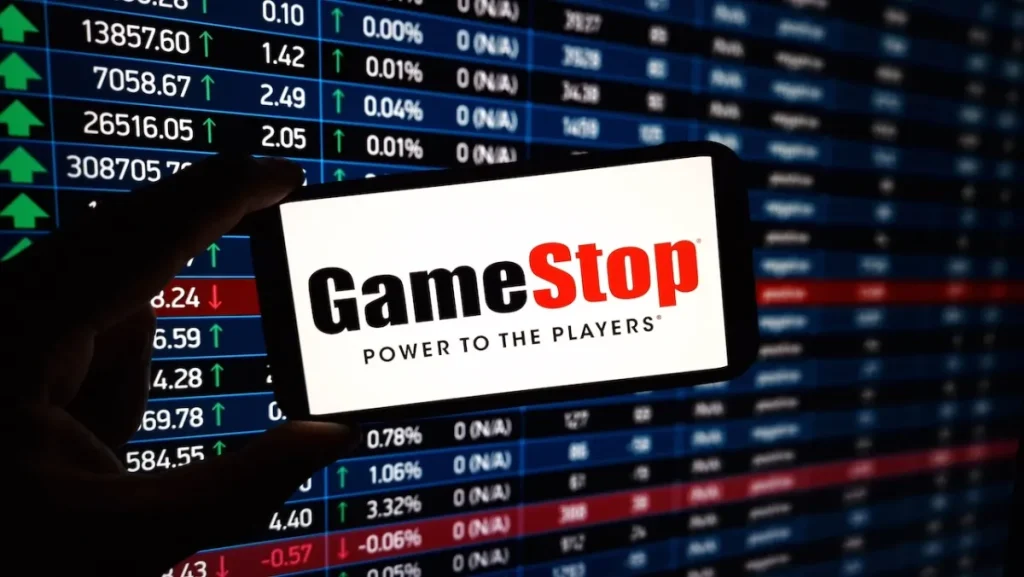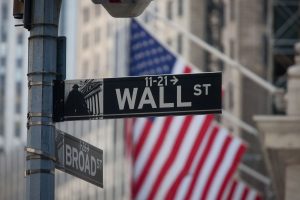The GameStop Short Squeeze: How Retail Investors Took on Wall Street.
The GameStop short squeeze is one of the most fascinating and unconventional stories in modern financial history. It started as a routine short-selling opportunity but quickly became a battle between retail investors and institutional short sellers, leading to a market frenzy that captured global attention.
According to financial expert Michael Burry, "The GameStop short squeeze represents a dramatic example of how retail investors can disrupt the traditional flow of the market."
What Happened: A Closer Look at GameStop’s Short Squeeze
In 2020, GameStop, a video game retailer, was struggling. As the company faced declining sales amid the rise of digital gaming and the global pandemic, institutional investors believed that GameStop’s stock was overvalued. As a result, these investors began to short the stock, betting that the price would drop. By January 2021, GameStop had become one of the most shorted stocks in the market, with over 100% of its available shares being shorted—a sign that the stock was ripe for a short squeeze.
A short squeeze occurs when investors who have shorted a stock are forced to buy back shares to cover their positions as the stock price begins to rise, creating even more upward pressure on the stock price. In GameStop’s case, this process was accelerated by a group of retail investors on Reddit’s r/WallStreetBets forum. These investors noticed that GameStop’s stock was heavily shorted and began buying shares and options in large numbers, causing the stock to surge.
Why Did GameStop’s Stock Skyrocket?
The buying frenzy in GameStop stock led to unprecedented volatility. On January 27, 2021, GameStop’s stock price hit an astonishing $483 per share, a massive increase from its value just a month earlier when it was trading below $20. This was a result of retail investors squeezing institutional short-sellers who were forced to buy shares to cover their positions. As a result, GameStop's stock price shot up by more than 1,700% in a matter of days, leading to billions of dollars in losses for hedge funds that had shorted the stock.
As the GameStop saga unfolded, Kenneth Rogoff, Professor of Economics at Harvard University, observed, "The rise of online forums and retail traders has significantly changed how market volatility can be triggered by collective action."
What began as a speculative move turned into a full-blown short squeeze, forcing institutional investors to cover their positions, further fueling the stock's rise.
Key Players in the GameStop Short Squeeze
One of the most notable hedge funds involved in the shorting of GameStop was Melvin Capital, which had bet against the stock and lost billions of dollars when the squeeze took hold. Citron Research, led by Andrew Left, was another key figure in the short position, though they were forced to reverse their stance and stop publicly shorting GameStop due to the overwhelming resistance from retail investors.
On the other side, retail investors on Reddit’s r/WallStreetBets forum became the focal point of the movement, with many of them sharing their strategies, rallying each other to buy GameStop shares, and pushing the stock higher. One notable figure was Keith Gill, a retail investor known by the username Roaring Kitty on YouTube and DFV (DeepFuckingValue) on Reddit. Gill’s enthusiasm for GameStop and his online presence helped galvanize a group of investors who believed that the stock was undervalued.
The Risks of Short Selling
Short selling can be an extremely risky strategy. Investors borrow shares from a broker to sell them, hoping to buy them back later at a lower price. However, if the stock price rises instead of falls, the short seller faces unlimited losses, as the stock price could continue to rise, forcing them to cover their position at an ever-increasing cost. This is exactly what happened with GameStop.
As the stock price surged, hedge funds and institutional investors were forced to buy back shares, driving the price even higher.
Warren Buffett, has said, “Risk comes from not knowing what you’re doing.” GameStop’s meteoric rise underscored the massive risks of betting against a stock with a passionate, coordinated base of retail traders behind it.
Institutional investors like Melvin Capital found themselves facing a dire situation when the stock’s price skyrocketed, forcing them to buy back the shares at a significant loss.
Legal Issues and Market Reaction
The GameStop saga raised questions about market manipulation and regulation. Retail investors on Reddit used social media platforms to coordinate buying activities, but was this manipulation? The SEC (Securities and Exchange Commission) issued a statement reminding market participants to "act in accordance with the law" during the event, but did not specify whether any laws had been broken.
Brokerage platforms like Robinhood also became embroiled in controversy. Amid the surge in GameStop’s price, Robinhood restricted trading of the stock, sparking outrage among retail investors who believed that the platform had sided with institutional investors. Robinhood later cited "capital requirements" from its clearinghouse as the reason for the restrictions. This led to Congressional hearings, where Robinhood’s CEO, Vlad Tenev, testified about the company’s role in the GameStop trading freeze.
The Aftermath: What Happens Next?
Following the height of the short squeeze, GameStop’s stock price eventually plummeted, settling back to more typical levels. The volatility led to massive losses for short sellers, particularly Melvin Capital, which required a $2.75 billion bailout from other hedge funds, including Citadel and Point72 Asset Management, to stabilize its operations.
For retail investors, some made incredible profits, while others lost significant amounts of money as the stock's value dropped after the squeeze. The event spurred discussions on the power of retail investors, the risks of short selling, and the role of social media in financial markets.
It also led to renewed debates about financial market regulations and whether brokerages like Robinhood were unfairly restricting retail investors’ ability to trade. Gary Gensler, Chair of the SEC, addressed the situation, stating,
"We are actively monitoring the situation and ensuring that market manipulation is kept in check." This shift in focus has led to calls for more transparency and regulation of platforms like Reddit, where retail traders often coordinate their moves.
What Does This Mean for Short Selling?
The GameStop event is a stark reminder of how risky short selling can be, especially when a short squeeze occurs. While institutional investors and hedge funds may use short selling to hedge against risks or to profit from falling stock prices, individual investors should approach short selling with caution due to the unlimited risk involved.
Short selling is legal in most countries, including the U.S., though there are regulations designed to curb its abuse. For instance, shorting stocks with over 100% of available shares is uncommon, but the GameStop short squeeze showed how the market can become distorted when so many shares are borrowed and sold short. In some jurisdictions, there have been calls for stricter regulations surrounding short selling, especially after events like GameStop.
The Future of Short Selling
The GameStop short squeeze was a financial event unlike any other in recent history. It illustrated the power of retail investors and the risks of short selling. It also raised important questions about market manipulation, fairness, and the role of financial institutions. As we move forward, short selling remains a legal but controversial strategy, and its role in future market events will continue to be closely monitored.




















